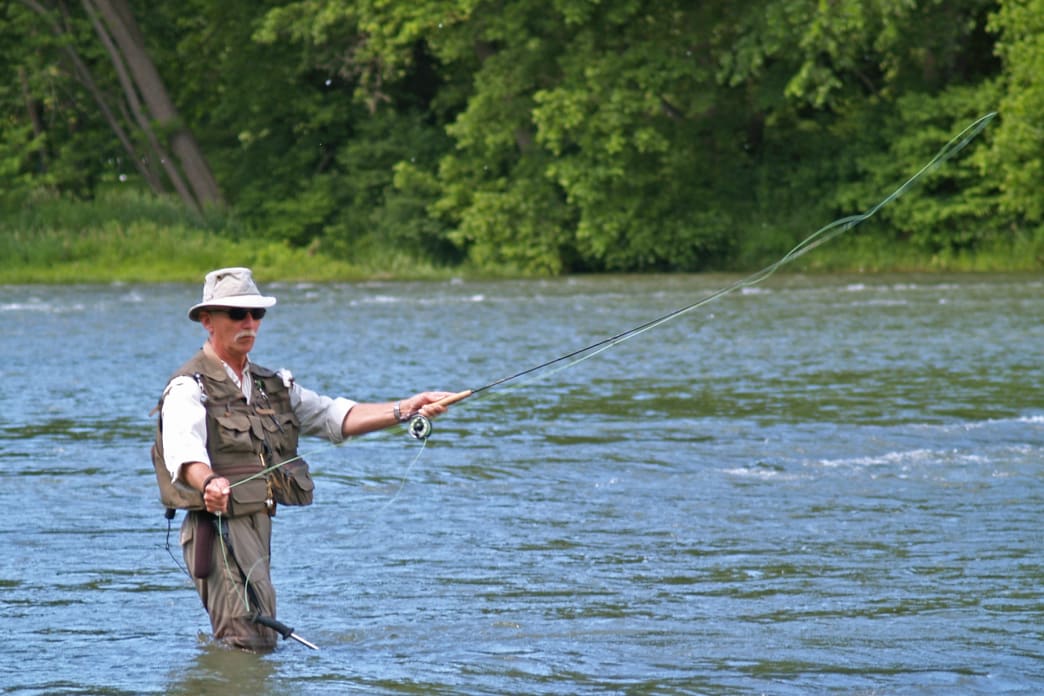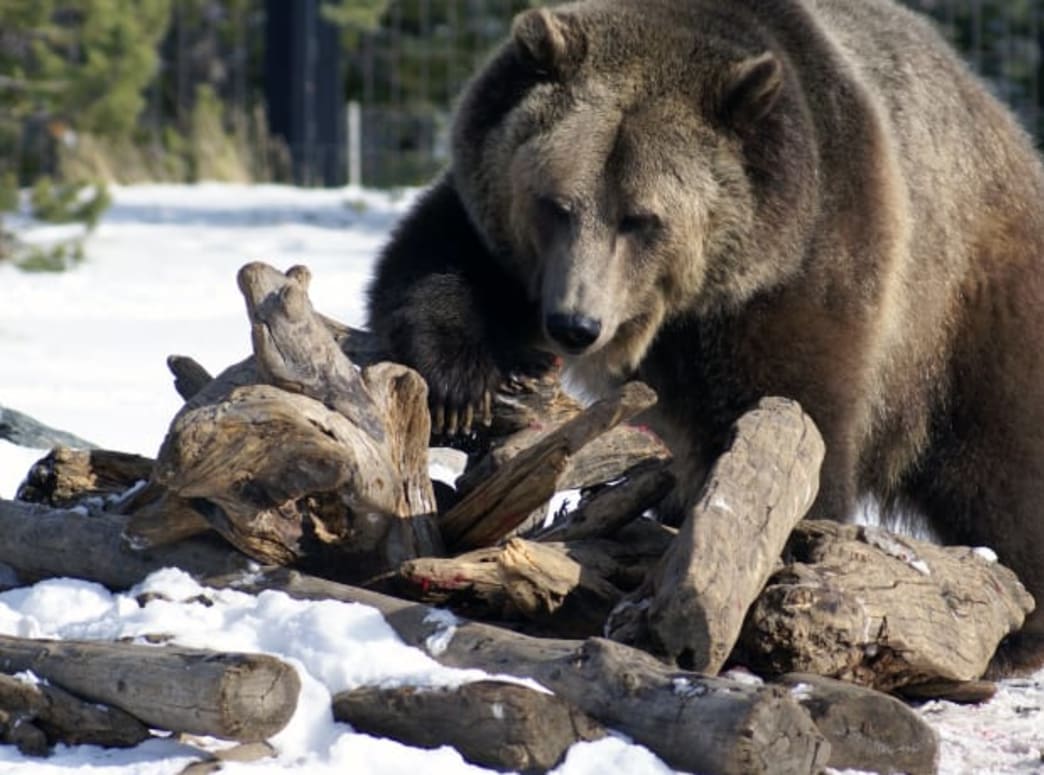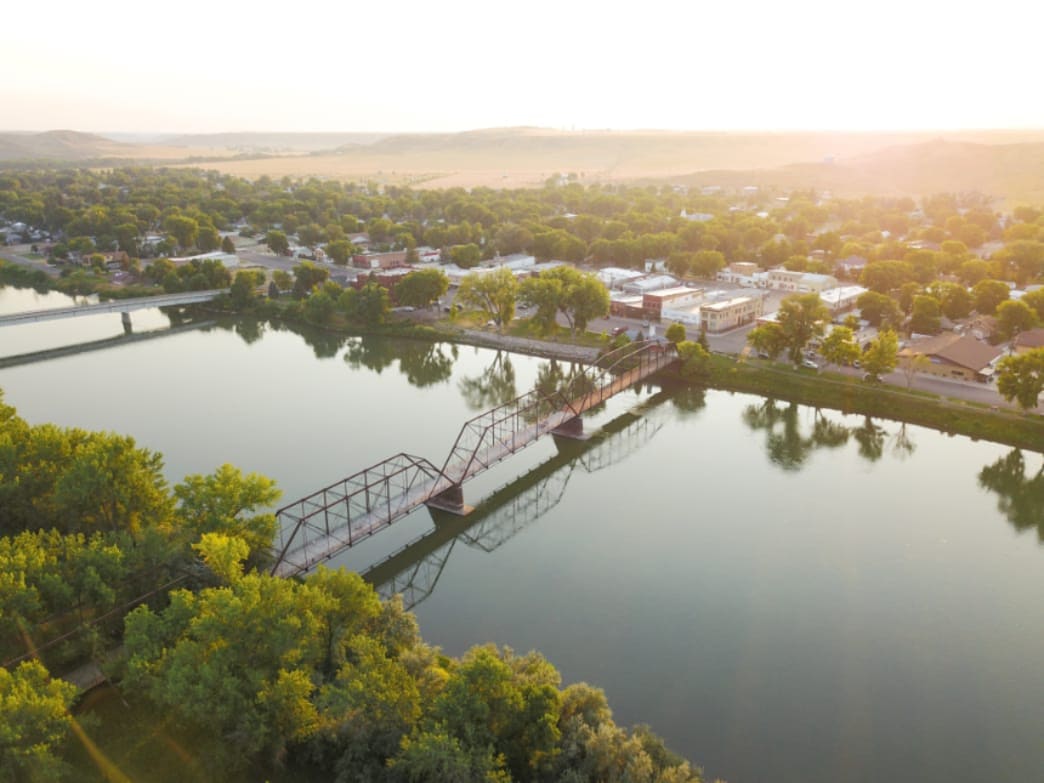An Angler's Guide to the Best Fishing in the Shenandoah Valley

Those who know fishing know that the Shenandoah Valley is one of the top angler destinations in Virginia. Offering both warm water, like the Shenandoah River, and cold water, like some of the waterways found in Shenandoah National Park, the Valley provides a variety of fish, and experienced guides can tell you where the fish are biting. Fishing in the Shenandoah Valley boils down to what appeals to you: Do you want the action-packed excitement of catching a smallmouth bass or the quiet intensity of outsmarting a brook trout?
When identifying waterways, the Shenandoah River will leap out first. One of the top smallmouth bass rivers in the eastern United States, it is featured as a must-do spot in Chris Santella’s book Fifty Places to Fly Fish Before You Die. Look to the South Fork of the river for the still and deep water, as the North Fork tends to be narrow and low. Both forks start in Rockingham County and then flow north until combining in Front Royal. The South Fork is known for its smallmouth bass, but the main stem that forms north of Front Royal is equally heralded for its variety, including largemouth bass, sunfish, and crappie.
Smallmouth bass get people excited about fishing this river. One of the toughest freshwater fish in North America, they are incredibly aggressive and fight hard. It’s not unusual to see them leaping two or three feet into the air when caught. Catching one can be incredibly rewarding.

But when you talk with anglers, a certain joy creeps into their voices when they bring up another fish—the brook trout—and that’s what you’ll find when you head away from the river and to the cold streams in Shenandoah National Park and the surrounding region. Also known as the state fish of Virginia, the brook trout average 6 to 9 inches in length and call those clear, cold streams home. And their home is vast, with about 500 miles of wild brook trout water in Shenandoah National Park alone.
"The hardest fishing of all is for brook trout in the Shenandoah Valley," explains C.T. Campbell who operates Page Valley Fly Fishing. “The clear water of these streams gives the brook trout an advantage in that they can see you. Fishing for them becomes very tactical,” Campbell notes. “You’ll be fishing from the bank, not the middle of the stream, and you need to think about how you make your presentation with your lure and your line—those fish will see you coming if you’re not careful.”

On the southern end of Shenandoah National Park, the South River winds through Waynesboro before joining with the South Fork of the Shenandoah. [Waynesboro](visitwaynesboro.net) is one of only two urban trout fisheries in the state, and its cool, spring-fed waters shelter trophy-size rainbow and brown trout that entice anglers from all over the country. The city’s love for all things fishing is reflected in its annual Fly Fishing Expo and the unique fishing-themed LOVEworks along the river. Gear and guides can be found at South River Fly Shop on Main Street.
North of Shenandoah National Park, Shenandoah Valley Fly Fishing (based in Winchester) is run by Galen Westman, a teacher in his day job who loves getting newbies out on the water. If you’ve never gone fly fishing before, he’s a great option to get you started.
Outside of Shenandoah National Park, there are numerous other small streams, like Mossy Creek, Cedar Creek, and Red Bud Run. Checking the stocking schedule put out by the Virginia Department of Game and Inland Fisheries, can help you find some well-stocked waters.
Mossy Creek Fly Fishing, which was opened by twin brothers Brian and Colby Trow in 2003, is another resource to help people discover fly fishing in this region. The shop in Harrisonburg offers all the fly-fishing products you could ever need, and its experienced guide service can help you catch brown trout in Mossy Creek, brookies in the mountain streams of the Shenandoah National Forest, or smallmouth bass on the Shenandoah and James Rivers, just to name a few favorite spots. That variety is what makes the area so attractive to anglers, both new and experienced, according to Nick Helle a guide with Mossy Creek.
"It’s a great place to learn," Helle says. “You can test yourself and improve yourself as an angler.” Mossy Creek and Beaver Creek are spring-fed streams, and generally stay around temperatures of 45 to 50 degrees throughout the year, meaning the water never freezes, and they can be fished year round. They’re also home to some of the larger trout such as brown and rainbow. Once you catch sight of those big fish, says Helle, excitement generally follows. “It’s attractive to anglers who are looking for that big catch,” he says.
"If you’re looking to hire a guide for an outing, it’s best to determine first what you want to accomplish and what you want to learn," Galvin says. This will help you communicate to the guide your expectations and help narrow down options. You also should check to see if the guide has a detailed website. Read the testimonials, learn about any of their other training (like first-aid or CPR), and get an understanding of what they offer. Orvis-endorsed outfitters are vetted and approved by the international fishing company. A little research will go a long way to helping you have an enjoyable outing that meets your expectations and goals.
If you decide to go on your own, make sure to refer to the Virginia Department of Game & Inland Fisheries for information on how to purchase a license and where to fish. Fishing is regulated in the Shenandoah Valley (as well as the entire state) to ensure the maintenance of a healthy fish population. Be sure you know the rules before hitting the water.
"It’s hard for many to believe it’s all there within two hours of a huge metropolitan area," Campbell says. “They see the small streams, but people don’t realize what’s there.”
One final resource: Trouts Unlimited is a national nonprofit organization dedicated to the sport of fishing and the conservation of their freshwater habitats. You’ll find a number of active chapters in the Shenandoah Valley, including one in Winchester, which holds local events like "bar fly" meetups (where they tie flies at a local brewery). They’re a great way to meet fellow anglers and discover new fishing spots.
There’s certainly a lot to explore—and to fish—in the Shenandoah Valley, and it’s worth taking advantage of these first-class experiences.
Written by Jen Adach for RootsRated in partnership with Staunton and legally licensed through the Matcha publisher network. Please direct all licensing questions to legal@getmatcha.com.




Comments